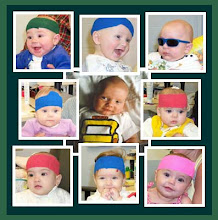
Second-Hand Smoke Decreases Children's Reading, Math and Reasoning Skills
source : daily news central
Provided by
DR WIDODO JUDARWANTO
SAVE CHILDRENS FROM SMOKE
Working together make a smoke-free homes and smoke-free zones for all children
Yudhasmara Foundation
JL TAMAN BENDUNGAN ASAHAN 5 JAKARTA PUSAT, JAKARTA INDONESIA 10210
PHONE : (021) 70081995 – 5703646
email : cfc2006@hotmail.com, judarwanto@gmail.com
www.savechildfromsmokers.blogspot.com/
More than 33 million children in the U.S. are exposed to environmental tobacco smoke at levels consistent with the adverse effects seen in this study. Parents who want their children to do better in school would be well advised to look beyond making sue they do their homework, have a good breakfast and get plenty of sleep. They should throw away their own pack of cigarettes and do their best to keep their kids away from others' second-hand smoke.A new Cincinnati Children's Hospital Medical Center study shows that exposure to environmental tobacco smoke, even at extremely low levels, is associated with decreases in certain cognitive skills -- including reading, math, and logic and reasoning -- in children and adolescents.
The study is the largest ever to look at the effects of environmental tobacco smoke on children's health. It is published in the January issue of Environmental Health Perspectives.
More Than 33 Million U.S. Children Exposed
"This study provides further incentive for states to set public health standards to protect children from exposure to environmental tobacco smoke," says Kimberly Yolton, PhD, a researcher at the Children's Environmental Health Center at Cincinnati Children's and the study's main author. "We estimate that more than 33 million children in the United States are exposed to levels consistent with the adverse effects seen in this study."
The study's findings translate into nearly a three-point decline in a standardized reading test and nearly a two-point decline in a standardized math test, given an average score of 100 and a modest increase in exposure to environmental tobacco smoke.
Logic and reasoning skills were tested in a task that involved the assembly of blocks. This task evaluated a child's ability to visually organize and reason in constructing a design quickly and accurately. The study found a .55 decline in block-design scores, given an average score of 10 and a modest increase in exposure.
'); } else if (_version ');}// -->
"These declines may not be clinically meaningful for an individual child, but they have huge implications for our society because millions of children are exposed to environmental tobacco smoke in the United States," says Dr. Yolton.
The study is based on data gathered from 1988-94 for the third National Health and Nutrition Examination Survey (NHANES-III), conducted by the National Center for Health Statistics at the Centers for Disease Control and Prevention. NHANES is designed to collect information about the health and diet of people in the United States.
85% of U.S. Children Have Cotinine in Their Blood
To measure exposure to environmental tobacco smoke, researchers measured levels of cotinine, a substance produced when nicotine is broken down by the body. Cotinine can be measured in blood, urine, saliva and hair. It is considered the best marker of environmental tobacco smoke exposure.
For this study, cotinine was measured in the blood of 4,399 children between 6 and 16 years old. Children were only included in the analysis if their serum (blood) cotinine levels were at or below 15 ng/ml, a level consistent with environmental tobacco smoke exposure, and if they denied using any tobacco products in the previous five days.
Cognitive and academic abilities were assessed using portions of standardized intelligence and achievement tests. Reading, math and reasoning scores were highly related to environmental tobacco smoke exposure: The greater the levels of exposure as measured by cotinine levels, the greater the decline in reading and reasoning ability, even at extremely low levels of exposure, according to Dr. Yolton.
Surprisingly, Dr. Yolton and colleagues at Cincinnati Children's also found greater decreases in cognitive skills at lower levels of exposure. While there was, on average, a one-point decline in reading scores for each unit increase in cotinine at levels above 1 ng/ml, there was a five-point decline for each unit increase in cotinine at levels below 1 ng/ml.
In the United States, 43 percent of children are exposed to environmental tobacco smoke in their own homes, and 85 percent of children have detectable levels of cotinine in their blood.
Glittery texts by bigoo.ws

















Tidak ada komentar:
Posting Komentar